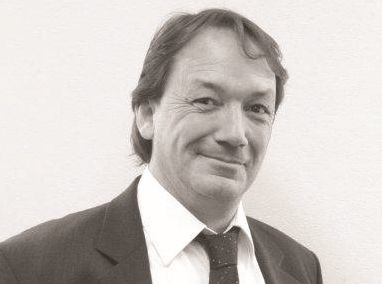CEO Insights 2019: Adrian Minshull, Hydroflux

What key trends do you predict will have an impact on the growth of your industry in 2019?
There has been a marked, positive change in the drivers to build wastewater treatment systems and our customers’ attitudes over the last few years. In 2019, we believe the majority of customers will no longer be looking to just meet their compliance obligations at the lowest capital cost, but seriously factoring in the operating cost and more importantly, the long-term sustainability of the process and equipment.
Recycling of wastewater and energy recovery are also becoming common drivers due to both water scarcity/reliability and rising energy costs. This trend will have the biggest impact on our industry in 2019.
What are the three biggest challenges facing your industry in 2019?
Recycling, particularly the recycling of wastewater into usable potable water or as a substitute for potable water, is certainly one of the bigger technological challenges and Australia’s home-grown technology in many areas of water recovery is certainly leading the world. Unfortunately, water recycling is also energy intensive, and with the uncertainty surrounding energy cost, the next challenge is the incorporation of energy recovery into the recycling process.
We need to address once and for all the challenge of public acceptance of the use of recycled water as potable water, particularly since much of our drinking water has been recycled, in some instances many times. Globally and in Australia there simply is not enough fresh water to sustainably provide for even the current population.
Finally, disposal of wastewater treatment by-products (sludge) is also complex and in some states stockpiles are building without a sustainable and commercially viable re-use or disposal solution.
What is your industry doing to attract, upskill and retain talent?
Lately the industry has seen an increase in interest, particularly in the engineering and science areas from both graduates and mid-career people. Possibly because the image of our industry has changed from the less attractive image of providers of sewage and pollution treatment system to the more positive image of providers of sustainable environmental protection systems.
Water scarcity, droughts, dying coral reefs, uncontrolled population growth and climate change are daily mainstream media headlines and the employees appreciate working in an industry where they can make a difference to the future. Retaining talent in our industry is about providing the freedom to explore ideas in a technologically rapidly advancing environment. The days of working your way up the ladder for 20 years before management would listen to your ideas are long gone.
What strategies are being implemented by your industry to improve sustainability?
There’s a complete strategic transformation. Wastewater is now a resource. From wastewater we can recover and recycle the water, make energy from the biomass and provide fertiliser for growing food. Local sewage treatment plants are now becoming receival depots for waste produce and combining them with their own biomass to become decentralised energy generation plants, often producing more energy than their own needs and exporting it to the local grid.
What effect is energy policy uncertainty having on your business?
Uncertainty in energy policy with rapid price fluctuations, always trending upwards, for both electricity and natural gas is having a negative impact for a couple of reasons. Wastewater treatment is often unavoidably energy intensive and thus costly, and rising and unpredictable energy pricing can negatively impact the level of compliance and decrease the predictability of operational costs for our clients. At the same time, whilst we are seeing an increased demand for energy recovery, either as a biogas that can be fed into boilers or used to generate electricity, a level of certainty about future pricing of energy would make the business case for these energy recovery systems sounder.
A first line of defence in wastewater screening
Two Queensland councils have opted for Australian-manufactured screening technology to protect...
Beef processor selects wastewater pump solution for dual purpose
John Dee Warwick wanted to upgrade its wastewater pump system to handle the day-to-day flows...
Melbourne Water finds an energy-saving solution
Sewage and wastewater treatment is a highly energy-intensive process, presenting a challenge for...








